Your Dog Knows When You’re Stressed – And Reacts!
For centuries, dogs have lived alongside humans, evolving to understand our moods, routines, and habits. Their survival once depended on reading human cues, and that skill hasn’t faded. If you’ve ever had your dog nuzzle you when you’re feeling down or stick close when anxiety creeps in, they’re likely picking up on signals you may not even realize you’re giving off.
Watching Your Body Language
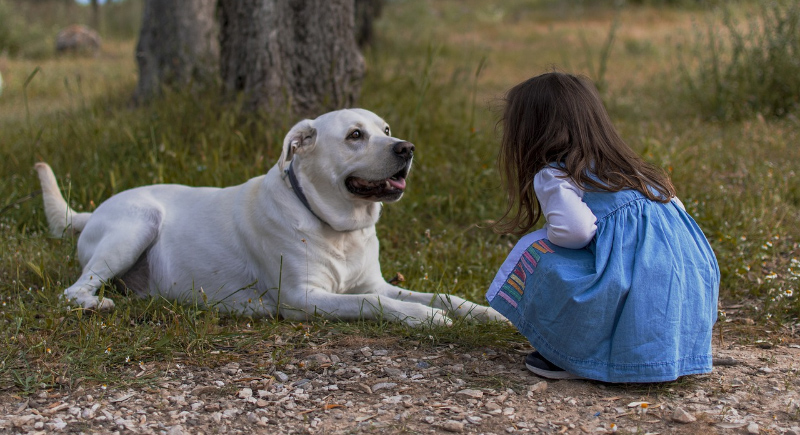
Credit: pixabay
Dogs are masters of nonverbal communication. They see it all—whether you’re tapping your fingers, pacing, or slumping in your chair. These little gestures might seem insignificant, but to a dog, they scream, something’s wrong!
Noticing Facial Expressions

Credit: pixabay
A furrowed brow, pursed lips, or tense jaw sends a clear message. Your dog doesn’t need to understand human emotions the way we do—they just know that when your face looks different, your mood has shifted, too.
Hearing Your Voice Change

Credit: pixabay
It’s not just what you say, it’s how you say it. Stress can make your voice sharper, higher, or more hurried. Dogs pick up on the difference and may react with concern, especially if you’re speaking louder or more abruptly than usual.
Smelling Chemical Changes
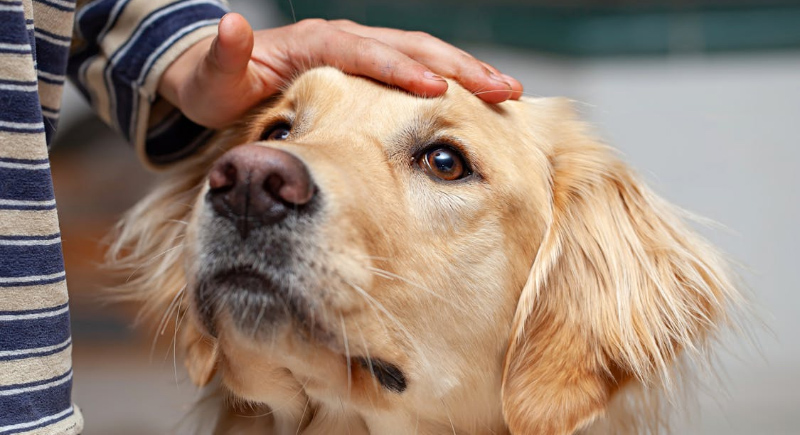
Credit: pexels
One of the wildest things about dogs is their ability to detect changes in your scent. When you’re stressed, your body releases cortisol and other chemicals, and dogs can smell that shift. They might not know why you smell different, but they’ll be alarmed.
Feeling Your Heartbeat

Credit: pexels
Ever notice how your dog snuggles close when you’re upset? It’s not just for comfort—they can actually feel when your heartbeat is faster or more irregular. Since they’re so in tune with rhythm and energy, a racing heart can be a dead giveaway that you’re not feeling your best.
Picking Up on Routine Changes

Credit: pixabay
Stress has a way of throwing off your usual schedule. Maybe you forget to feed your dog at the usual time, skip the evening walk, or get up at odd hours. Dogs rely on routine, so when things start shifting, they naturally show concern.
Sensing Your Energy

Credit: pexels
Dogs don’t need words to know when someone’s anxious. They feel it. If you’re moving differently—fidgeting, rushing, or even just breathing heavier—your dog picks up on that nervous energy.
Noticing Less Attention

Credit: pixabay
When you’re stressed, your focus shifts. You might pet your dog absentmindedly instead of giving them your full attention, or maybe you don’t engage with them as much. Dogs notice when they’re being brushed aside.
Responding to Your Touch

Credit: pexels
Your dog can tell the difference between a relaxed, affectionate scratch behind the ears and a distracted, tense pat on the head. If your touch feels different—maybe rougher or quicker than usual—they’ll pick up on it.
Observing Social Interactions
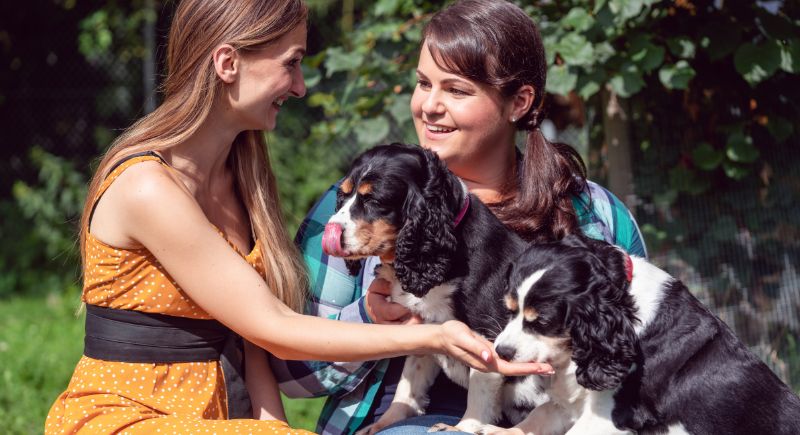
Credit: Canva
Dogs don’t just watch how you interact with them—they also pick up on how you engage with others. If you’re snapping at family members or avoiding conversation, your dog recognizes that shift in behavior.
Becoming Anxious Themselves

Credit: pixabay
Some dogs absorb their owner’s stress like a sponge. If you’re anxious, they may start pacing, whining, or acting restless. It’s their way of mirroring your emotions and expressing their concern.
Trying to Distract You

Credit: pexels
Ever had your dog nudge you with a toy when you’re deep in thought? That’s no accident. Some dogs try to break the tension by encouraging play or demanding attention—it’s their way of getting you out of your head for a moment.
Displaying Protective Behavior
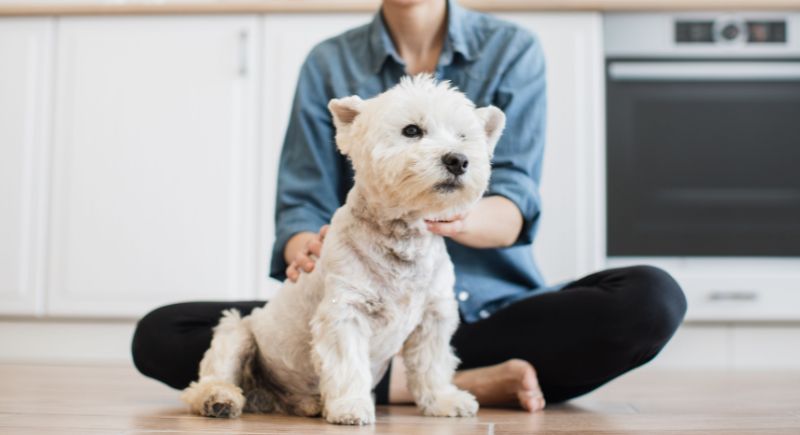
Credit: Canva
Stress can make a dog more protective. If they sense that something is wrong, they may stick close to your side, position themselves between you and others, or even growl if they feel you need defending.
Using Calming Signals
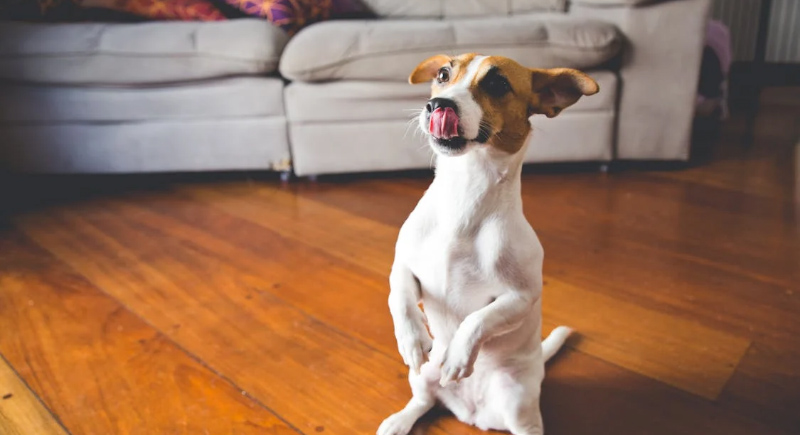
Credit: pexels
Dogs have their own ways of soothing both themselves and their humans. You might notice them yawning, licking their lips, or turning away when they sense stress. These small actions help them manage their own emotions and, in some cases, try to calm you down too.
Reading Eye Contact
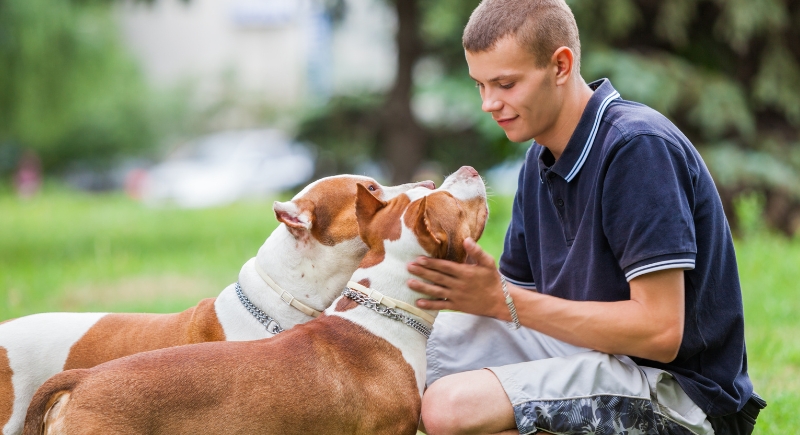
Credit: Canva
Dogs are experts at reading eyes, often watching yours to figure out what’s going on. When you’re stressed, your gaze might dart around or avoid theirs altogether. They sense that unease instantly. A steady, gentle look can reassure them you’re okay and, in turn, calm you down too.
Mirroring Your Movements

Credit: Canva
Ever notice your dog yawning when you do or matching your pace around the house? That’s emotional synchronization in action. When you’re tense, your dog often mirrors that energy; pacing, sighing, or acting restless. It’s their way of showing empathy and staying connected to you.